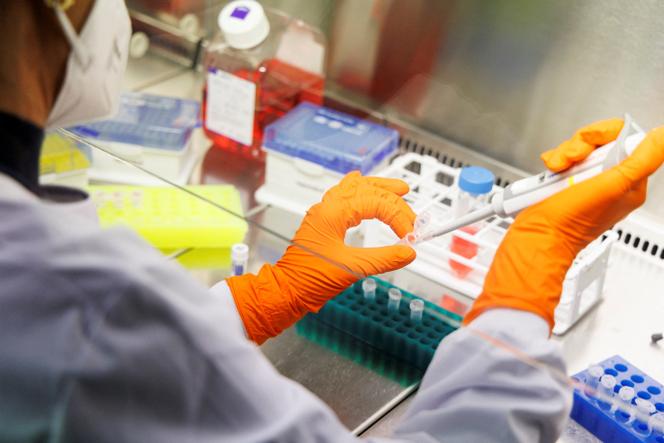


In Kvistgard, north of Copenhagen, there's a feeling of déjà vu. Ever since the World Health Organization (WHO) declared the mpox epidemic in Africa to be a public health emergency of international concern on Wednesday, August 14, the spotlight has been on Bavarian Nordic's vaccine manufacturing plant, located in Kvistgard for several decades.
The spotlight was also here two years ago, during the worldwide mpox outbreak that began in 2022. As one of the few pharmaceutical companies that had an mpox vaccine, MVA-BN, Bavarian Nordic was overwhelmed by orders at the time and struggled to meet the sudden surge in demand. Although other vaccines do exist, such as LC16 from Japan's KM Biologics or, more recently, OrthopoxVac from Russia's state-owned Vector Laboratories, they remain almost exclusively intended for their respective national markets, unlike the Danish one, which has been approved by most of the world's health authorities.
"It was predicted that mpox would return. The changes in the behavior of this virus – which was initially transmitted only from animal to human, but then became human-to-human – were a warning," said Jean-Daniel Lelièvre, head of the Clinical Immunology and Infectious Diseases Department at Henri Mondor University Hospital. "Despite this, we haven't given ourselves the means to have other options for large-scale vaccine production."
In response to the epidemic currently affecting Africa, Bavarian Nordic is working to increase its production capacity. By mobilizing lines used to manufacture its other vaccines, the laboratory has said that it is ready to increase its mpox supplies so that it can provide the continent with up to 10 million doses by 2025, 2 million of which could be available before the end of this year. This will enable an organized vaccine response in which at-risk populations in the worst-affected countries can be immunized.
But the orders still need to be placed. Discussions on the subject are underway between Bavarian Nordic, the WHO, the Gavi organization, the African Union's public health agency (Africa CDC) and governments. One of the challenges will undoubtedly remain the cost of purchasing these products, whose prices, beyond the reach of most African countries, are an enduring obstacle to vaccine access. Faced with this difficulty, Bavarian Nordic and Africa CDC have also entered into negotiations to transfer technology in order to enable the production of the mpox vaccine on the continent, thereby allowing a price reduction in the future.
You have 30.86% of this article left to read. The rest is for subscribers only.
